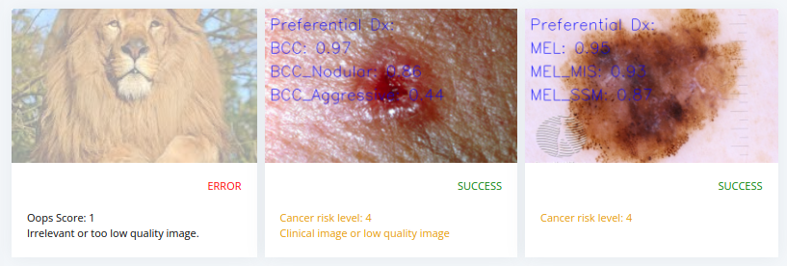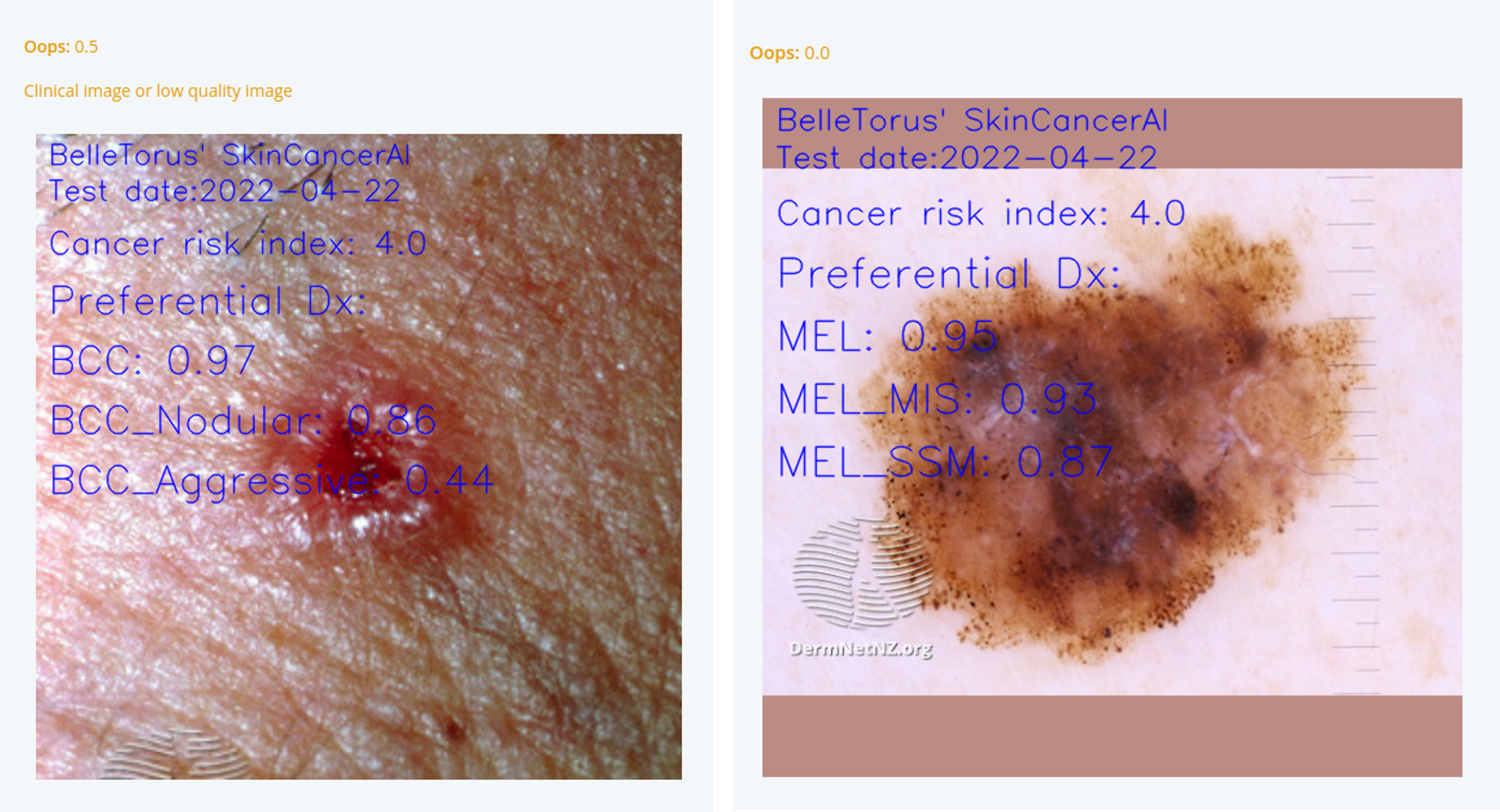Skin is the largest organ of human body and skin cancer is the most common cancer in the world. Skin cancer is deadly at late stage when cancer spreads to internal organs. However, if being detected early, skin cancer can be cured with high survival rate.
The use of Artificial Intelligence (AI) as medical diagnosis assistant has become extremely popular in the last decade. Supported by ITOBOS, one of the biggest European projects for fighting skin cancer, Torus Actions has developed a novel AI solution for early detection of skin cancer. This AI solution, namely Skin Cancer AI, can detect up to 12 types of melanomas which are the deadliest skin cancers, 38 types of non-melanoma skin cancer, and more than 70 other types of skin lesions.
Skin Cancer AI works on both clinical and dermoscopic images. However, the diagnosis is more accurate when using dermoscopic images because these images often have higher resolution.
Skin Cancer AI contains a component dedicated to quality check. This component works as a filter with two main roles. Firstly, it detects irrelevant images (cat, house, flower, etc) or low-quality images that are impossible to make diagnosis on. Secondly, it detects whether the input image is clinical or dermoscopic. The diagnosis will be hence with higher confidence for dermoscopic images.
The quality check output is digitized as Oops score. Low Oops scores (less than 0.25) suggest dermoscopic images. Moderate Oops scores (between 0.25 and 0.75) suggest clinical or low-quality images. Oops scores larger than 0.75 suggest irrelevant or too low-quality images. In the last case, Skin Cancer AI will push up a warning and ask users to upload another relevant image of higher resolution.
Below are some examples of quality check function in Skin Cancer AI. A photo of lion is recognized as irrelevant image. A clinical image of Basal Cell Carcinoma (BCC) and a dermoscopic image of malignant melanoma (MEL) get moderate and low Oops scores respectively. Test images are taken from https://dermnetnz.org/ and https://fr.wikipedia.org/.
Apart from quality check and detailed categorical diagnosis, Skin Cancer AI also provide an estimation of cancer risk level. This might help users in making decision on monitoring their skin lesions. More details about cancer risk estimation can be found at [link to the blog post of cancer risk system].


